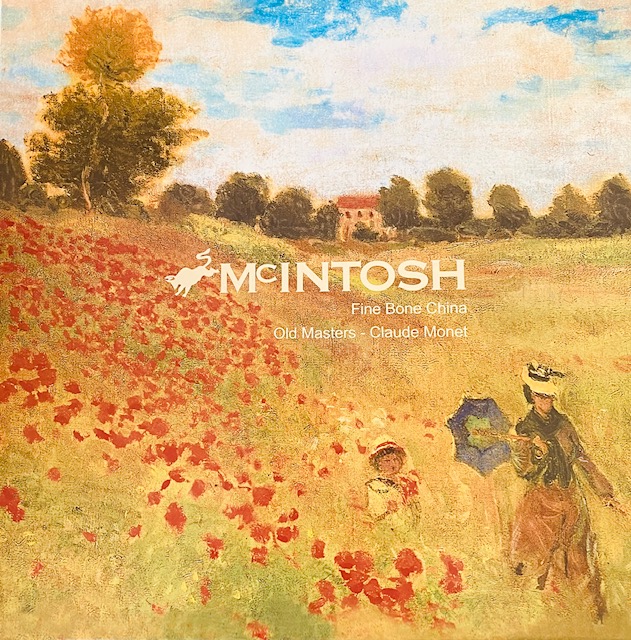The June 29, 2022 blog, written by (none other than) me, spoke of being back in the saddle (blogging again) explaining the phrase: “Back in the saddle means being in control of. Used in a sentence: The Supreme Court, the right to lifers, the headliners and the Republicans are now going to be in the saddle. However, they are not going to be in charge of me as I do not need an abortion at this moment in time, moreover I no longer live in the USA.”
It seemed to me, then, at that point in time, that ‘to abort or not to abort’ issue was dormant, not to be a topic touched upon by this blog. But, unfortunately (or fortunately) a New Yorker article appeared in my Inbox and absolutely must be brought to the attention of any, and all. First of all I shall give you the link:
https://www.newyorker.com/books/under-review/the-study-that-debunks-most-anti-abortion-arguments?utm
It is simply and eloquently titled: The Study That Debunks Most Anti-Abortion Arguments.
It is powerful and illuminating. Margaret Talbot tells us that for five years researchers asked women their experience about having an abortion – or not having an abortion. What do their answers tell us?
Talbot begins in a powerful way, essentially laying a groundwork in the scientific method, essential for an understanding of the study and its implications. “There is a kind of social experiment you might think of as a What if? study. It would start with people who are similar in certain basic demographic ways and who are standing at the same significant fork in the road. Researchers could not assign participants to take one path or another—that would be wildly unethical. But let’s say that some more or less arbitrary rule in the world did the assigning for them. In such circumstances, researchers could follow the resulting two groups of people over time, sliding-doors style, to see how their lives panned out differently. It would be like speculative fiction, only true, and with statistical significance.
A remarkable piece of research called the Turnaway Study, which began in 2007, is essentially that sort of experiment. Over three years, a team of researchers, led by a demographer named Diana Greene Foster, at the University of California, San Francisco, recruited 1,132 women from the waiting rooms of thirty abortion clinics in twenty-one states. Some of the women would go on to have abortions, but others would be turned away, because they had missed the fetal gestational limit set by the clinic. Foster and her colleagues decided to compare the women in the two groups—those who received the abortion they sought and those who were compelled to carry their unwanted pregnancy to term—on a variety of measures over time, interviewing them twice a year for up to five years.
The study is important, in part, because of its ingenious design. It included only women whose pregnancies were unwanted enough that they were actively seeking an abortion, which meant the researchers were not making the mistake that some previous studies of unplanned conceptions had—“lumping the happy surprises in with the total disasters,” as Foster puts it. In terms of age, race, income level, and health status, the two groups of women closely resembled each other, as well as abortion patients nationwide. (Foster refers to the study’s participants as women because, to her knowledge, there were no trans men or non-binary people among them.) Seventy per cent of the women who were denied abortions at the first clinic where they sought them carried the unwanted pregnancies to term. Others miscarried or were able to obtain late abortions elsewhere, and Foster and her colleagues followed the trajectories of those in the latter group as well.”
Those of my dear readers with the requisite stamina and interest will link the entire article but here is its overwhelming significance. There have been showers of signs and statements saying that Doctors Not Lawyers Should be Making Decisions, these have proliferated since the decision that aborted Roe v. Wade came down. Reading this portion of Talbot’s inspiring article sent chills as it so speaks directly to this issue. “To the former Supreme Court Justice Anthony Kennedy, among others, it seemed “unexceptionable to conclude some women come to regret their choice to abort the infant life they once created and sustained.” In a 2007 abortion-case ruling, he wrote that “severe depression and loss of esteem can follow.” It can, but the epidemiologists, psychologists, statisticians, and other researchers who evaluated the Turnaway Study found it was not likely.” “Some events do cause lifetime damage”—childhood abuse is one of them—“but abortion is not common among these,” Foster writes. In the short term, the women who were denied abortions had worse mental health—higher anxiety and lower self-esteem. In the longer run, the researchers found “no long-term differences between women who receive and women who are denied an abortion in depression, anxiety, PTSD, self-esteem, life satisfaction, drug abuse, or alcohol abuse.” Abortion didn’t weigh heavily in determining mental health one way or the other. Foster and her co-authors note, in an earlier article, that “relief remained the most commonly felt emotion” among women who got the abortions they sought. That relief persisted, but its intensity dissipated over time.”
Talbot concludes powerfully: “None of that changes the fundamental principle of human autonomy: people have to be able to make their own decisions in matters that profoundly and intimately affect their own bodies and the course of their lives. Regret and ambivalence, the ways that one decision necessarily precludes others, are inextricable facts of life, and they are also fluid and personal. Guessing the extent to which individuals may feel such emotions, hypothetically. The Turnaway Study will be understood, criticized, and used politically, however carefully conceived and painstakingly executed the research was. Given that inevitability, it’s worth underlining the most helpful political work that the study does. In light of its findings, the rationale for so many recent abortion restrictions—namely, that abortion is uniquely harmful to the people who choose it—simply topples.”
Perhaps a powerful slogan might be: “Saying that abortion harms people who choose it is B.S. and a downright lie.” I suppose a shorter version: “Saying that abortion harms the aborters is absolute B.S.”
The problem faced by the rational individuals in this world is this: most people do not understand the difference between anecdotal evidence and real facts, competent research, hand evidence They confuse facts and opinion – an issue often discussed in this blog. Type facts and opinion in the search engine and the relevant blogs will appear.
Two bit slogans (even my suggestions) are not going to do it. By the way, two bit means insignificant. One must fight ignorance with knowledge. Perhaps the swells of people attracted by slogans, their sheer numbers can be a source of power but there must be intelligence, there must be some factual and compelling reasons behind it. Talbot’s article, the study and the book can provide it. Would not it be wonderful if Justice Kennedy read the article, read the book and admitted that he wrongly decided the prior case. I am definitely not counting on it but we can dream, can’t we.? Allah promises that good prevails always over evil, so there is hope!
The photographs attached to this blog are things of beauty taken at the Monet Exhibit that will be taking place in Edmonton until September. There was, of course, a gift store wherein I purchased a black hoodies to keep me warm and four china mugs, beautifully encased in a box which is also pictured. An articulate young man and his mother were ‘manning’ the gift store, they both lived in Leduc, which is nearby. A small town on the outskirts of Edmonton. The perfect size, not a big city but a community that would foster intimacy. But if you all go there to live it will no longer be intimate. Hahahaha. Humour is essential to life, particularly these days. `



